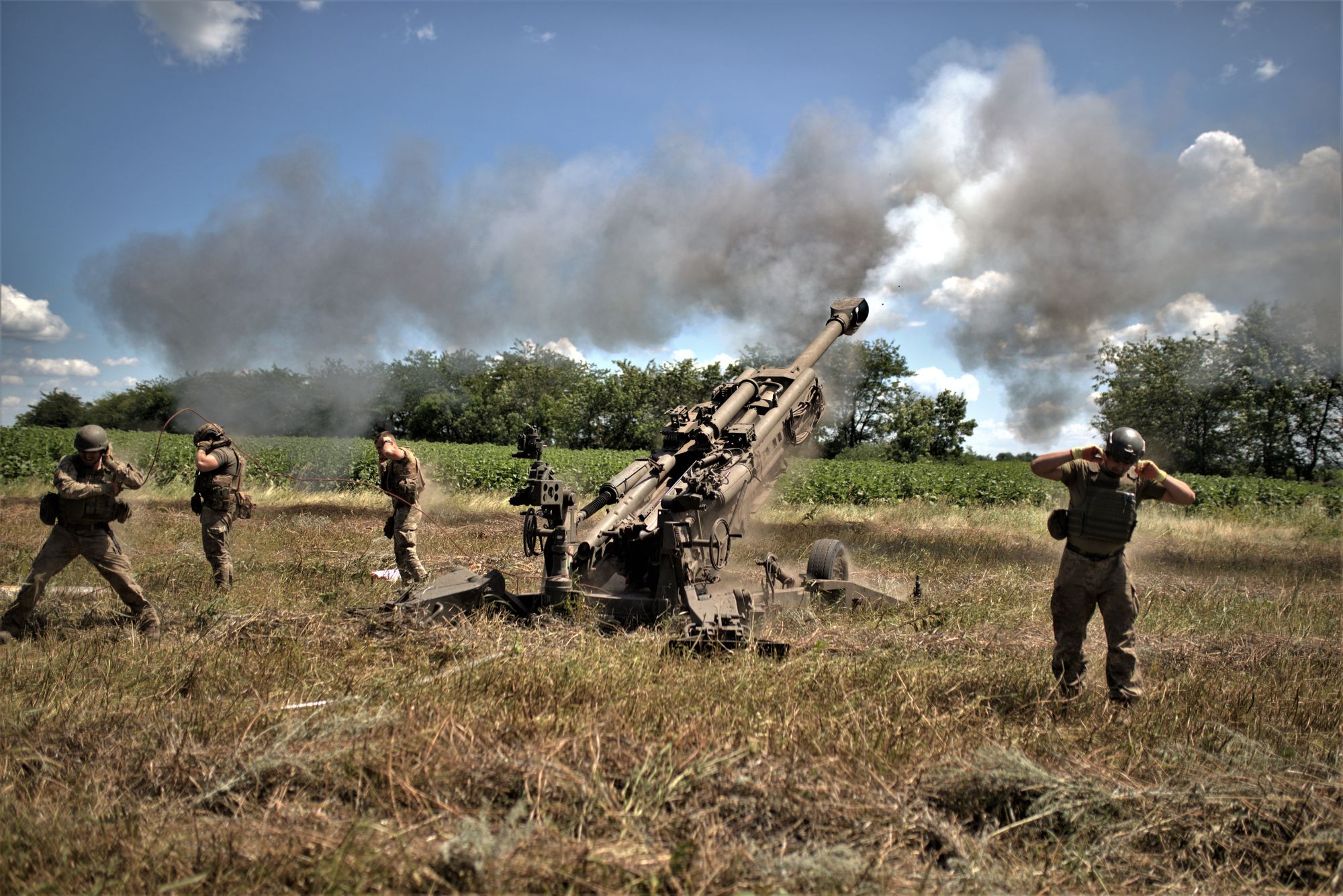CNN: Ukraine possibly used cluster munitions when retaking Urozhaine

Ukrainian forces have likely used either U.S.-supplied cluster munitions or their domestically-produced alternatives while retaking the village of Urozhaine, CNN reported on Aug. 17, citing two unnamed experts.
Urozhaine in the southwestern part of Donetsk Oblast is the latest Ukrainian settlement confirmed as retaken, with Ukraine's Defense Ministry announcing its liberation on Aug. 16.
Drone footage of the battle around the settlement captured Russian soldiers retreating southward while under fire by what the weapons experts cited by CNN identified as possible cluster munitions.
A Ukrainian assault company commander with the callsign Dykyi said that Russian forces suffered heavy losses, especially once they "started to run." However, he did not comment on the possible use of cluster munitions in the engagement, CNN said.
The news outlet added that it is unable to confirm whether the suspected cluster munitions in the combat footage are the U.S.-supplied dual-purpose improved conventional munition (DPICM), pointing out that Ukraine is thought to have produced similar devices on its own and may have already deployed them in battle.
Oleksandr Tarnavskyi, the commander of the Tavria group of forces, confirmed to CNN on July 13 that the U.S. had already delivered the weapons it had pledged as part of the $800-million aid package to Ukraine the week before.
The Wall Street Journal reported on Aug. 8 that the new weaponry provided "fresh impetus" to Ukraine's counteroffensive, allowing its troops to capture positions it has previously struggled to take.
The announcement that the U.S. was sending cluster munitions to Ukraine was seen as controversial due to humanitarian concerns over their use.
Cluster munitions scatter bomblets over a wide area. The cluster munition duds, or unexploded bomblets, can pose a danger to the civilian population in the area long after the hostilities end.
The Ukrainian military has therefore said that cluster munitions will not be used in cities, densely populated areas, or on Russian territory.
While Russian forces have been using munitions with a dud rate of 30-40%, the U.S.-provided cluster munitions would have a dud rate not higher than 2.5%, according to National Security Advisor Jake Sullivan.
Over 120 countries banned using, developing, producing, acquiring, stockpiling, or transferring cluster munitions in the 2010 convention. Ukraine, the U.S., and Russia are not signatories to the convention.














